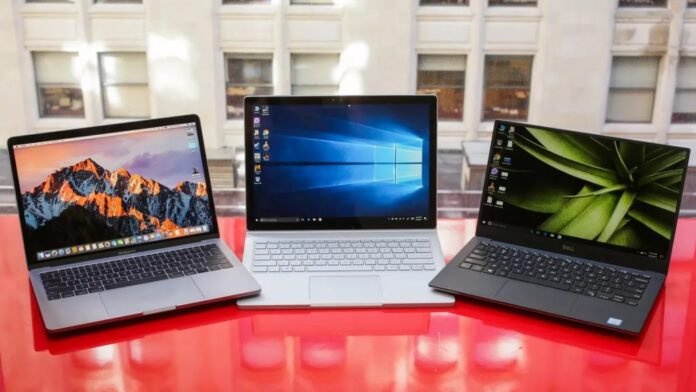Buying a laptop is not as easy as buying a new pair of jeans. Where important information such as comfort and quality can be felt in the fitting room when you strike a few poses in nice jeans. We have to analyze a lot on the laptop side to find the same information. “How can a gene compare to a laptop?” you may ask. The answer is simple. A good laptop makes your personal/business life complete, just like a good pair of jeans. One that can become a staple in your wardrobe. Thus, both are personal items that must offer a first-class design. Value for money, comfort and high quality, all made for a superior experience.
Shame on you if you are not familiar with technical terms. Gathering information is not easy, because “This laptop has an Intel Pentium 4 3.6 GHz, 1 GB RAM, 80 GB hard drive, 17″ display — total weight of 5.5 kg” means nothing to you. Discuss several things This should have been considered on the laptop only But we will break down each point to understand what those points mean and why they are important.
The first step is before entering an e-store or surfing online. Another is to specify the size of the laptop you want. This includes physical size and weight. Laptops range from less than 1 kg to 6 kg! If you plan on transporting your best vr laptop under 1000 on a business trip/to the agent, something lighter will serve that purpose much better. If you are looking for a laptop for use in different rooms in your home. A bigger “desktop replacement” would be perfect for you. There are different types of laptops. Divided by weight, below you will find information about weight, screen size, advantages and disadvantages of different categories. To help you differentiate between these categories.
Netbook – less than 1.5 kg, 8.9 – 10″ screen, light, portable, plug-in anywhere, missing features, slim keyboard.
Ultraportable – under 2kg, 10 – 12″ screen, portable, hidden, lack of features, slow hard drive.
Thin and light – 2 – 4 kg, 13 – 15″ screen, light weight, easy to carry, larger keyboard. Fewer features than larger laptops
main flow – 3 – 5 kg; 14″ screen, easy to use laptop for every day budget no outstanding features average performance
Desktop replacement -> 5 kg Screen 15 – 17″ Large screen, easy to carry, practically all the functions of a desktop computer. No need to travel far Must be placed on a surface (too heavy on lap)
Once you’ve decided what size laptop is right for your needs. You should review and compare the specifications and general features of the different models. that matches your size category.
Hard Drive – A hard drive is the physical space on a laptop, measured in gigabytes. Laptop hard drives range in size from 30 GB to 200 GB and run at 4200, 5400 or 7200 RPM. 40 GB is the standard laptop size. And a normal process doesn’t require much more than that, but if you’re dealing with large images or a large number of files, you’ll need 80GB or more! Keep in mind that some laptops have pre-installed software programs that take up space. So check carefully with your dealer how much space you actually have for personal use. You can always buy an external hard drive if you need more space to store and record media.
RAM – Random access memory allows laptop programs to run quickly and smoothly. There is nothing more annoying than a laptop that takes a long time to turn on and is generally slow! Adding RAM is an easy way to optimize your laptop. 2 GB or more RAM is recommended as it allows multiple programs to run simultaneously. And it’s great for games, graphics, video editing. And the overall speed boost gives your laptop the flexibility it needs. However, it is important to remember that 32-bit operating systems only recognize 3 GB of RAM, while a 64-bit system requires 4 GB or more to get the most out of it. .
CPU — The central processing unit (eg Intel Core 2) is the heart of your laptop and is measured in megahertz (MHz) or gigahertz (GHz). The higher the processor speed, the better. The faster the processor, the faster it will work. Many laptops have “Dual” or “Quad” processors for maximum performance. If you are not a fan of intensive gaming, a 2GHz chip is more than sufficient.


